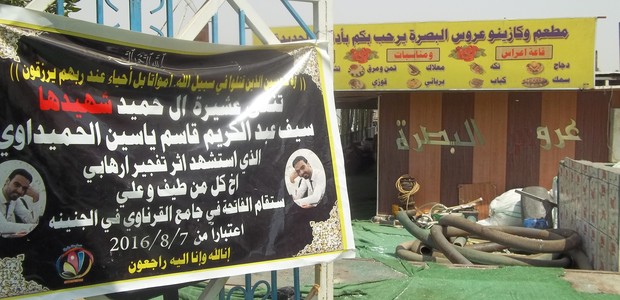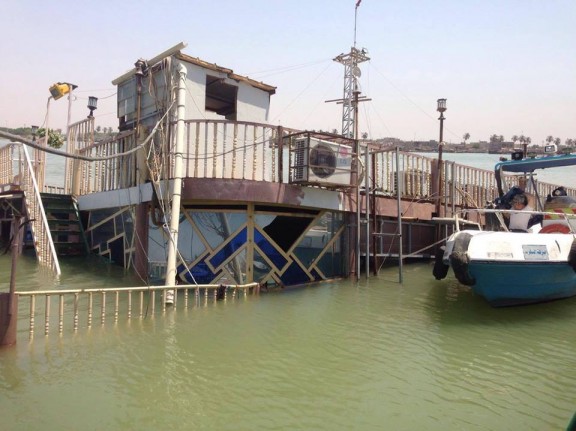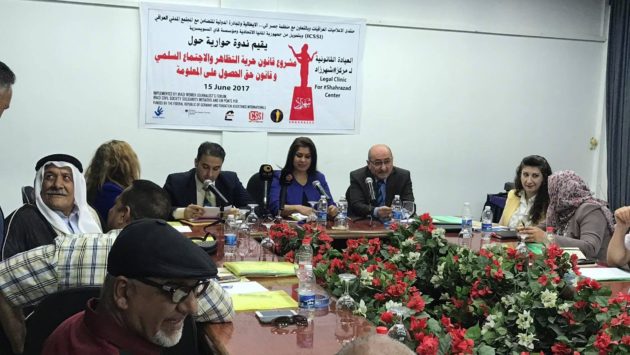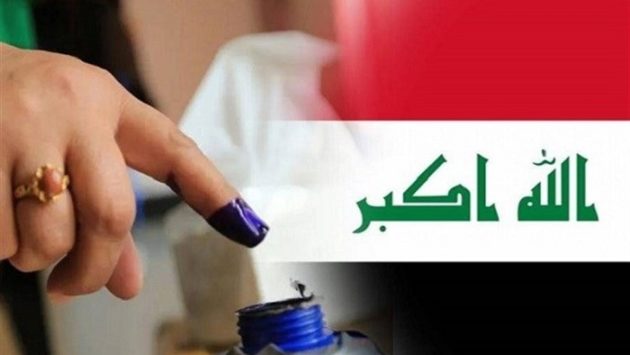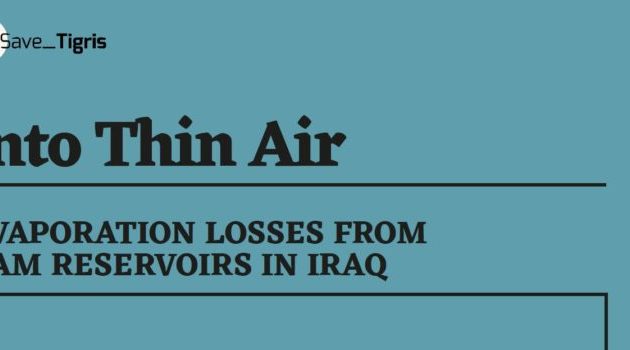House Of The Devil? Religious Extremists Bomb Cafes In Basra Because They Employ Women
Niqash – Ammar al-Saleh
It was the second bombing of its kind. And after the incident, those clearing the wreckage in the Coffee Time Café in central Basra found a flyer describing the cafes as “the house of the devil” and threatening all those who worked in the cafes with death and other dreadful retribution.
The first attack had been on another café in July and the perpetrators used an improvised explosive device on the side of the road. This was followed by further attacks targeting venues that were used as casinos on the edges of city waterways, including one called the Arous Al Basra in early September; these tend to be popular with tourists coming to the relatively peaceful southern Iraqi city. Beside the casinos there are also many cafes in these areas, frequented by young people and by families. In the Arous Al Basra bombing, a man died and there have been many injuries. A worker from Bangladesh was injured in the Coffee Time Café bombing.
The apparent reason for the attacks in the town? Women employees in the cafes.
Basra isn’t really under threat from Sunni Muslim extremists like the Islamic State group, because almost all the population here is Shiite Muslim and security is tight.
“This café and others have employed women in service-related fields,” says Huda Kareem, 32, one of former employees at the Arous Al Basra. Kareem had been working at the venue for around two years but now she and many of her colleagues no longer have a job or an income. “Extremists have attacked the venues and cafes because they employ women, and that means that opportunities that were available to us have closed off.”
Despite assurances from the local government that they will protect them, most of the women employed in local cafes and tourist venues have decided to leave their jobs for the time being, Kareem confirms. Nobody knows if the female employees will return to work. The other fear is that the religious extremists, believing women shouldn’t work at all, may attack other places where women work, including in shopping malls and beauty salons.
“Why are these cafes and entertainment venues being targeted?” complained Sanan al-Halfi, a former navy captain who owns the Arous Al Basra. “We don’t commit any violations of the law and the owners abide by all rules and regulations. The Arous Al Basra was a tourist attraction but it also hosted weddings, conferences and other cultural events. By targeting these places, they [the extremists] are ensuring that tourists will no longer come to Basra. Instead they will go elsewhere.”
Saying that the cafes were being bombed because they employed females made no sense to al-Halfi, who estimates that the bombing did about IQD500 million (US$420,000) worth of damage to his business. “There are women all over the world working in the service industry and if their work is supervised, it can only have a positive impact,” he argued.
The attacks were widely condemned. “These acts are a serious challenge to Basra’s security,” a statement from the Basra governor’s office said. “No one has the right to carry out attacks like this under the pretext of “promoting virtue and preventing vice”. And no one has the right to attack commercial places that are abiding by municipal rules and regulations.”
The council also announced a number of measures to try and prevent further attacks. The council’s media spokesperson told NIQASH that proposed plans included the installations of surveillance cameras and the employment of security guards who would monitor the establishments during working hours.
Remains of the Arous Al Basra venue; most of it has fallen into the water after the bombing.
“It’s clear there are religious motives behind these acts,” Ahmed Abdul-Hussein, a member of the local council’s legal committee, said. “Religious extremists believe that by targeting these places, they are correcting society’s mistakes and furthering their message. But,” Abdul-Hussein added, “we cannot rule out the possibility that there are certain political groups who are targeting these cafes and casinos with the aim of disrupting Basra’s security situation.
Security forces say they have arrested someone responsible but, like many locals, Abdul-Hussein says he doesn’t believe they’ve caught the right person. He thinks the announcement was made just to assuage popular anger at the bombings.
“We believe there are some influential figures standing behind these attacks,” local civil rights activist, Alaa al-Imarah, told NIQASH, before asking how these extremists were actually able to carry out their plans without some sort of contacts or influential connections.
Al-Imarah says he has good reason for his suspicions. “Most of the targeted cafes and casinos are in the heart of Basra city,” he explains. “It would be difficult for terrorists to get to them, let alone plant bombs, especially with so much security in the area. For example, the Arous Al Basra venue is only a few dozen metres away from the governor’s building and there are security offices there too. The same thing applies to the Coffee Time Café in Algiers Street where there are many security officers and surveillance cameras.”
There’s no difference between what the apparently Shiite Muslim extremists are doing and what the extremist Sunni Muslim group known as the Islamic State is doing, al-Imarah said.
“And depriving women of jobs and wage will simply see the women resort to other ways – possibly immoral and unethical ways – to make a living for their families,” he concludes.

